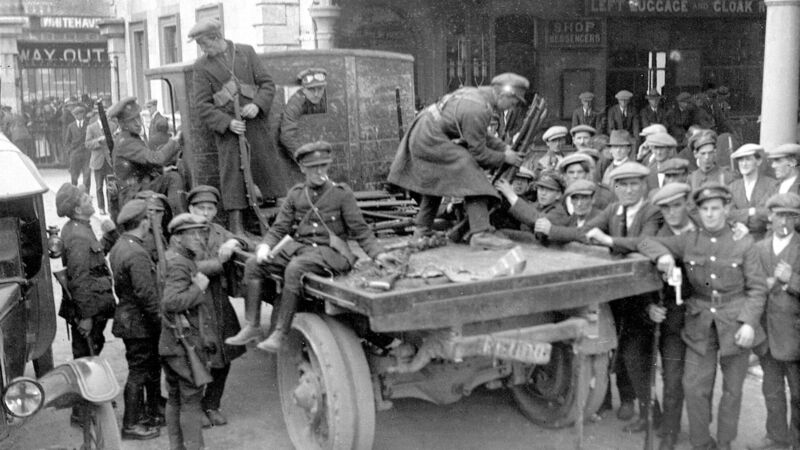Silent Civil War: American student's old interview tapes shed light on Irish conflict

Free State soldiers unload guns at Albert Street Railway Station, Cork - shortly after the battle of Douglas during the Irish Civil War in August 1922
Harlan J Strauss acted in Netflix’s House of Cards, amongst other screen performances. He switched to full-time acting after a career working at the Pentagon, acting as an advisor to eight secretaries of defense, including Dick Cheney and Donald Rumsfeld. He sat at the table, negotiating over 20 international treaties for the United States government.
Before his time in foreign affairs, Strauss travelled to Ireland in 1972 as a PhD student. He was in his mid-twenties, researching revolutionaries and their motivations. His research took him to the doorstep of James Dillon in Dublin, a giant of Irish politics in the second half of the twentieth century and son of John Dillon, one of Charles Stewart Parnell’s key lieutenants.




